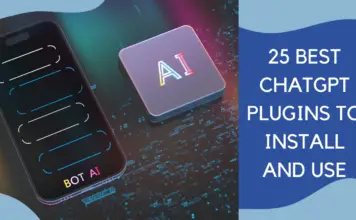Have you moved to a new neighborhood or setting up a business and are unable to decide which of the competing technologies should you go for? Are you unable to decide between fiber optic vs cable connections?
Fast speed and cheap internet are readily available these days. Internet Service Providers (ISPs), telecom companies and cable service providers are getting fiercely competitive. They are fighting to direct more consumers their way. Moreover, it is also about gaining and maintaining a hold on the market share. The FCC (Federal Communications Commission), also, approved a stringent set of internet neutrality rules for Open Internet.
If you are wondering what is cable internet and fiber internet or the differences of opting for either, here is our take on it. This should help you to make an informed decision as to which one should be chosen and why.
What is Cable Internet?
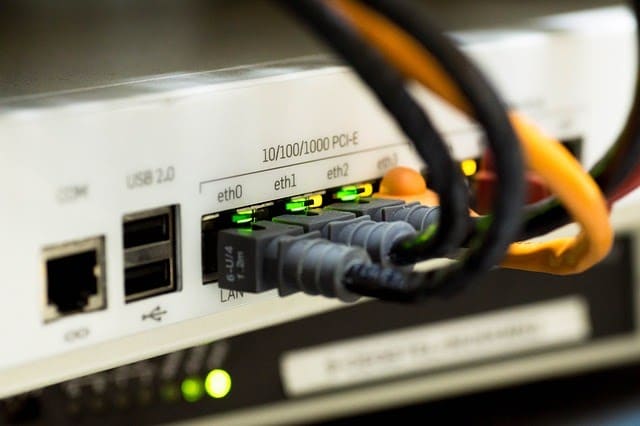
Cable internet works on the same technology like cable television. Moreover, it is the largest provider of internet in the world. The internet service comes to you through the cable service provider. It requires a modem installed at your home, workplace or any place where you need an internet connection.
A termination system is required at the operator’s end as well as a professional technician to install the same. Cable internet requires coaxial cables for an internet connection to be established. Coaxial cables are made of copper and wrapped in plastic. They connect to the internet from an internet service provider to your house, sending signals through the wires via electrical wavelengths.
Therefore, in the case of cable internet, the data is transmitted via a cable TV network through coaxial cables in the form of electrical signals.
Advantages Of Using Cable Internet
1. Cable internet does not require any phone service to operate.
2. The speed of the cable internet is set as per industry standards which is decent enough for personal usage. It is faster than any broadband internet connection.
3. Cable internet is suitable for heavy and frequent usage of the internet. It can stream large quantities of videos and other content on the web.
Disadvantages Of Using Cable Internet
1. Since the bandwidth is shared with neighbors and those in the vicinity, the speed becomes slow during peak hours.
2. Cable internet is not available at all places.
What is Fiber Internet?
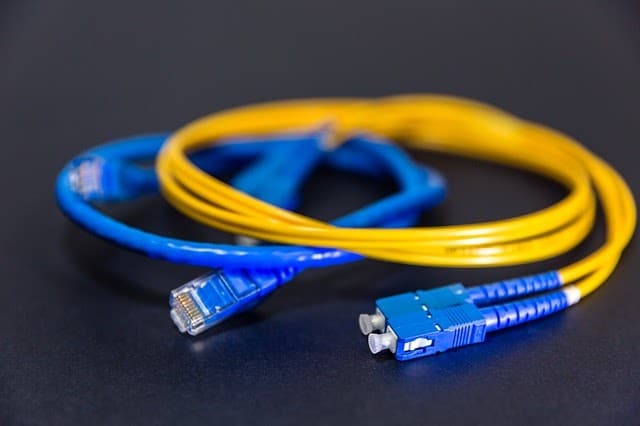
A fiber optic cable is made of thin glass and plastic fibers that transmit light and not electricity. The data is transmitted through light waves. The process works through internal reflection and your data, be it in any form is contained within its light. It does not require any modem to avail of the internet service.
Each time light hits any material, it may lead to contraction, absorption or refraction. If the light gets absorbed, there will be no internet connection. When the light gets refracted, the data will not be sent to the receiving end. So, when the light continuously reflects from one end to the other, a stable internet connection will be established.
Therefore, in the case of fiber internet, the transmission is carried out through light signals via fiber optic cables.
Advantages Of Using Fiber Optic Internet
1. When it comes to fiber optic vs cable, the volume of data that fiber optic internet connection can transmit is unmatched due to the extremely high bandwidth. It is nowhere close to the cable internet service.
2. Fiber optic cables have the capacity to provide low power loss. Thus, enabling the light signals to be transmitted to longer distances than cable internet.
3. Fiber optic internet connection is electromagnetic interference-resistant. This means it is immune to external factors like noise, ventilating, heating.
4. Fiber is really fast; it has already achieved gigabit internet speeds.
Disadvantages Of Using Fiber Internet
1. Fiber optic internet is difficult to install. Do not bend the cables too much; they might break.
2. They are fragile and prone to damage.
3. It is a very expensive option.
Fiber optic vs Cable: How to Choose Between Fiber Optic and Cable
A dial-up connection is a thing of the past and is hardly used anymore now. Satellite internet currently is problematic, very expensive, and has limited practical usage. And while DSL is a probable option yet fiber optic and cable internet are faster alternatives.
1. Fiber Optic vs Cable: Speed
Cable internet speed ranges from 20 to 300 Mbps. The upload speed usually stretches from 7 to 20 Mbps.
(Please note: Mbps stands for megabits per second)
In the case of fiber optic internet connection, the speed ranges from 150 Mbps to 500 Mbps. Whereas the upload speed ranges from 65 Mbps to 100 Mbps.
It is thereby allowing unmatched speed when it comes to downloading any kind of content on the web, sharing files, streaming or uploading without any compromise in performance.
2. Fiber Optic vs Cable: Reliability
Cable internet connection is generally considered reliable, but if there are frequent cable outages and interruptions then your internet service will be affected. If you run a business that requires being connected to the internet all the time, having a back-up internet connection is advisable.
When it comes to Fiber Optic vs Cable, a fiber optic cable connection is more reliable since it is not affected by power outages. Also, the cables are made of glass which is not a conductor of electricity. That is why the fiber optic internet connection is unaffected by power lines or high-voltage electrical equipment.
3. Cable vs Fiber Optic: Availability
One factor which makes cable internet superior to fiber optic is availability. Cable internet is easily accessible. Most people have it installed in their homes and offices since it is reliable, fast and inexpensive. However, it might not be available in rural locations.
Although fiber optic is not as easily available as cable internet, its accessibility is expanding. Installing a fiber optic internet connection needs installing a new cable connection. Therefore, it is not readily available in most markets. The construction fees are too high to be adopted by all. Even if the growth is expanding, the rural parts of the world will, of course, be the last to receive it.
4. Fiber vs Cable Internet: Price
The cost of the cable internet depends on the location from which you are operating. You can also choose to club your television, internet, and phone services which might make pocket-friendly packages available to you. The price is affordable and would cost you around $25-$100, depending on what plan you opt for.
However, in the case of fiber optic vs cable, fiber optic is comparatively costly. Do not forget the fact that a new cable connection needs to be installed, which is a heavy-duty process. Your monthly expenditure on internet services will increase to a great extent too if you choose this. However, if your business demands excessive usage, you should go for it.
The monthly plan may range from $100-$300 per month, depending on your location and the plan you opt for. The speed and no interruption immunity is totally worth the price. Also, the price gap between the two is shrinking as time is passing by.
5. Fiber Optic Internet vs Cable: Gaming Preference
Online gaming needs high-speed internet at their disposal all the time. This is because they really do not want their game to be hampered because of the interruptions in the internet speed. They would be the first ones to tell you that not all Internet Service Providers are the same.
The fiber optic and cable internet debate can be put to rest here because the former is definitely the king of gaming. A fiber optic internet connection has a better speed which means faster downloads.
Also, the quality of the connection is higher when compared to cable, thereby reducing the latency rate. There are fewer amounts of jitter and interruptions because, as already mentioned, fiber optic internet connection is not affected by power outages.
So, look out for the highest speed internet connection for enjoying the best gaming experience.
Fiber Optic vs Cable: Who is the Winner?
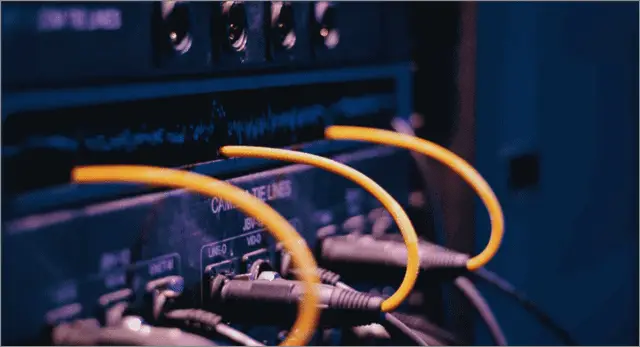
Usually, debates like these do not have a clear winner, but in this case, we do.
Fiber optic is undoubtedly the best. So, to sum it all up for Fiber Optic vs Cable:
(i) Fiber optic provides high-speed internet
(ii) No interruption in power outages
(iii) Quick transmission of data
(iv) Best suited for long-distance communication
Cable internet has the lead in availability. It can be accessed wherever there is cable television, thus making the internet services available in rural areas as well.
When we compare the cost of the two, cable internet’s pricing depends on the company’s infrastructure; whereas fiber optic connection requires establishing new cables. One of the costs of the latter might be higher, but over time it can be maintained cheaply.
Cable vs DSL Internet
Ever wondered what the difference between Cable and DSL internet is?
Cable internet use coaxial cables. DSL or Digital Subscriber Line, on the other hand, use the copper wires of your telephone lines to direct internet access your way.
When you compare the speed of the two, DSL is not as fast as cable internet but works just fine to suit basic internet needs at your place. DSL is definitely faster than a dial-up connection, in any case.
Fios vs Xfinity and Fios vs Comcast
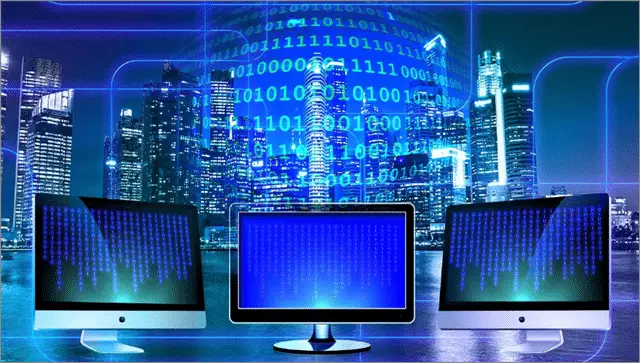
Confused as to which internet service provider should you opt for? We’ll make things easier for you.
Verizon Fios and Comcast Xfinity are at the top two spots in the US when it comes to providing internet services. Fios is delivered by a fiber-optic network. Which means the internet speed is blazing fast. Xfinity, on the other hand, is more widely available.
Here’s a comparison chart that will help you narrow down your choices.
Comcast Xfinity Verizon Fios
| Availability | 39 states in the US | 9 states in the US |
| Price of internet | $39.99-$299.99/month | $39.99-$79.99/month |
| Installation Process | 1 hour on average | Up to 6 hours |
| Internet connection type | Cable | Fiber |
| Internet speed | 15/2 Mbps – 2000/2000 Mbps | 100/100 Mbps – 940/880 Mbps |
Fiber Optic vs Cable: What does the future hold?
Between fiber optic and cable internet, the future belongs to fiber internet. Google fiber has 1 gigabit per second download speed and 1 gigabit per second upload speed, which is exceptionally fast.
AT&T fiber-optic internet is also fast reaching most cities in the U.S. Comcast too has joined the gang in offering the fastest internet plans which utilize the fiber-optic network.
This is not it as the future holds much more. Google is exploring the idea of bringing in balloon-powered internet to rural areas. Facebook tried to achieve the same by establishing an internet connection using drones and lasers.
We cannot, however, ignore the rapid speed at which LTE and cellular internet are advancing. The usage of smartphones has increased manifold, and most people use the device as a primary computer. Telecom companies are fighting neck-to-neck to improve the technologies they’re providing, to beat the rivals and build their networks.
In the U.S, South Korea, and Japan, wireless carriers are already delivering internet speeds in gigabits, as they have been experimenting with the same on their 5G trail networks. So, you never know if the wired internet that we are talking about today might become a thing of the past in the near future.
Conclusion
When it comes to fiber optic vs cable, your requirement can help you decide better.
Cable internet is easily available, comes with an affordable price tag, and delivers high-speed internet. It is suitable for meeting the essential home and workplace internet requirements. However, a fiber-optic connection is recommended. If you’re looking for establishing a new business that requires heavy-duty internet usage, we suggest that you add new cable lines which is a one-off cost. Also, the maintenance costs post that is cheap.
Are you a gamer and wondering which one should be selected between fiber optic and cable internet for gaming? Go for the former. What kind of internet connection you choose also depends on the availability of the same in your locality. However, the future undoubtedly belongs to the fiber-optic internet.
Also, check:
- Utilize NetWorx to Monitor Your Internet Speed, Bandwidth and More
- Banish Cord-Clutter: Store, Arrange and Manage Office Cords


